End of 2021 Virginia Housing Market Recap
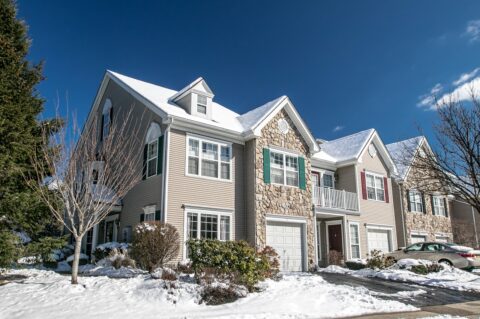
The past year has seen some unique trends in the Virginia housing market, with the first three quarters seeing steady growth and the last few months seeing a slow-down, or a return to “normal.” But that normal is still higher than where we were before the COVID-19 pandemic struck. Let’s take a look at some of the key trends that have emerged in the Virginia real estate market over 2021.
Renting vs. Buying a Home: The Pros and Cons
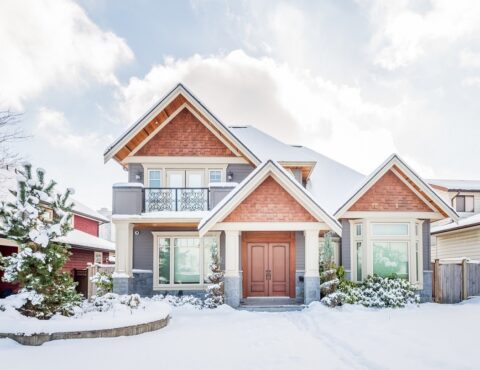
In this competitive market, many prospective homebuyers are considering alternatives to buying—like renting. Here are some factors to consider when deciding whether to buy or rent your home.
How You Can Grow Your Real Estate Business in 2022

As we approach the new year, it’s the perfect time to think about ways you can grow your real estate business. Although it’s true that the market is always fluctuating, there are key tools you can use to bring in more clients and reach new levels of success. Here are our top three ways you can grow your real estate business in 2022.
How to Keep Up Your Curb Appeal This Winter

Missing your vibrant summer flowers and bright green lawn? When the colder winter months hit, many of us decorate our home interiors to look like a winter wonderland. Here are some ways you can spruce up your home’s curb appeal so it will look just as lively and inviting in the winter, too!
Virginia Housing Market Recap for Fall 2021
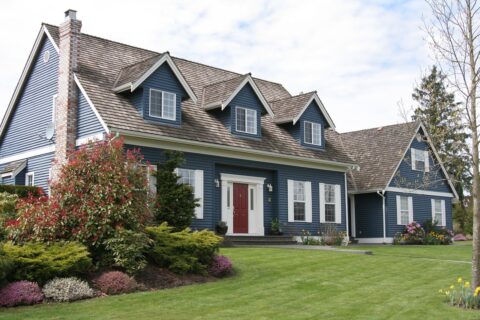
With winter fast-approaching, it’s time to see where the Virginia housing market stands at the tail end of what has been a memorable year!
How to Prep Your Home for Spring Selling
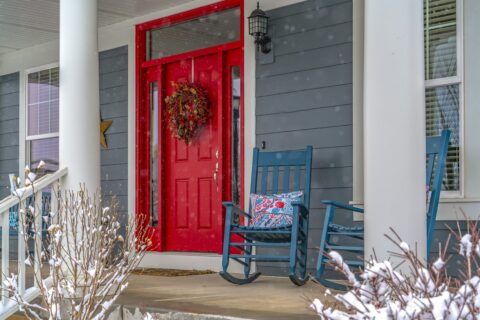
With market conditions stabilizing in Virginia, it’s predicted that selling patterns will remain relatively stable through the winter. As the weather gets colder and we celebrate the holidays with loved ones, there are still things you can do during this season to prepare for spring selling. After all, you don’t want to get stuck worrying about the prep all at once! Here are some ways to get ready to sell your home in the spring during the winter months.
A Look into Different Home Foundations

When it comes to your home, foundation issues can be some of the most problematic and expensive to repair. Unfortunately, most homeowners aren’t as familiar as they should be with their home’s foundation and the damages that can occur.
Below, we’ll discuss the different types of foundations found in Virginia and how to spot common issues on each. We’ll also discuss best practices for what to do if foundation repair in Virginia is needed.

Common Foundation Types in Virginia
A few foundation styles are found throughout Virginia, with each being more prevalent in certain areas within the state. Below are the most common foundation types in Virginia and how to spot issues on each.
Slab Foundations
Slab foundations are the simplest type of foundation. They consist of a single concrete slab poured directly onto the prepared soil. They don’t provide any under-home space for storage or utilities.
Slab foundations are most common in Eastern Virginia, particularly along the coast. This is primarily because the water table is very shallow in these areas and would present a significant flooding problem for basements and crawlspaces. Slab foundations are usually the best for limiting the adverse effects of the shallow groundwater, floodwater, and abundant rainfall in Virginia.
How to Spot Issues on Slab Foundations
The most common type of damage on slab foundations is cracking. However, most gaps that develop on the slab’s surface will be covered by your home and won’t be visible.
The easiest way to find damages on your slab is to head outside and inspect the visible strip of concrete along the base of your home. Look for cracks, crumbling, and any signs of your foundation sinking into the ground.
Additionally, it’s possible to find symptoms of slab foundation damage inside your home, as the entire structure depends on the slab for a level and sturdy base. You might notice cracks in the sheetrock around wall openings, doors and windows that are difficult to open or close, and uneven or sloping flooring.
What to Do If Your Slab Foundation Needs Repair
Most cracks that you will find on slab foundations aren’t indicative of structural instability and more likely just need to be sealed to prevent water intrusion. If you find a crack that is more than ⅛” wide or unlevel from side to side, consider calling in a professional for an inspection.
Structural cracks in slabs are possible, and they are generally treated using a technique called piering. This process involves drilling through the slab and installing supportive piers beneath it to prevent further movement. In Virginia, you can expect this to cost between $5,000 and $15,000.
Pier and Beam Foundations
Pier and beam foundations usually consist of concrete piers set deep into the Earth, with the beams that support your home laying on top of these piers. The under-home area provided by this type of foundation can be used for storage or utilities. However, the space is usually open to the outside and may not be ideal for these purposes.
Pier and beam foundations are another popular choice for homes near the coast of Virginia, as floodwaters can move freely beneath the house without causing significant damage.
How to Spot Issues on Pier and Beam Foundations
Problems with pier and beam foundations are easier to find than those on slabs, as you will have easy access to the under-home area. You can head beneath your home to look for issues, the most common of which include mold growth, increased humidity, musty odors, pooling water, and signs of pest infestation.
You may notice symptoms of humidity accumulation inside your home as well. Keep an eye out for mold growth inside, uneven flooring, and unusually hot or cold indoor temperatures.
What to Do If Your Pier and Beam Foundation Needs Repair
Pier and beam foundation repair can range quite a bit in price in Virginia. Relatively minor issues like sealing the under-home area can cost as little as a few thousand dollars. Structural damage may involve jacking up the house and replacing the piers or beams on which your home sits. This process can easily reach over $10,000.
Crawlspace & Basement Foundations
Crawlspace and basement foundations are very similar in that they include an enclosed area under your home. Most use a concrete slab as the floor and concrete block or solid concrete for the walls. Crawlspaces offer three to four feet of clearance beneath your home for storage and utilities. Basements typically provide seven to ten feet of clearance and can either be finished or unfinished for storage or living space.
Because crawlspaces and basements require massive excavation and sit primarily below ground, they are more expensive to install and are much more prevalent in western Virginia where the threat of shallow groundwater isn’t as severe.
How to Spot Issues on Crawlspace and Basement Foundations
Locating issues in crawlspaces and basements is usually as simple as heading beneath your home and inspecting the area. Some of the most common problems include cracking on the foundation walls and moisture and water accumulation.
Hairline cracks are generally not indicative of structural damage, but horizontal and stair-step cracks on the walls can occur if the clay soil in Virginia expands and puts too much pressure on the foundation.
You should also pay attention for humid air, musty odors, visible mold growth, and pooling water beneath your home.
What to Do If Your Crawlspace or Basement Foundation Needs Repair
Repairs for crawlspaces and basements often include stabilizing the walls if Virginia’s clay soil puts too much pressure on them. These repairs commonly total between $5,000 and $20,000.
Additionally, given the above-average amount of rainfall in Virginia, you are more likely to need a waterproofing system with these types of foundations. A complete system typically costs between $5,000 and $10,000.
Wrapping Up: Virginia Foundations & Issues
Owning a home in Virginia can be a rewarding experience, but you should always be aware of the foundation issues that are prevalent throughout the state.
Understanding the type of foundation you have, the problems that can occur, and what to do if you find damages is crucial for limiting your repair costs. Armed with knowledge about your home’s foundation and the most common problems, you can help keep your home and your family safe from harm.
5 Ways You Can Boost Your Home Value This Winter
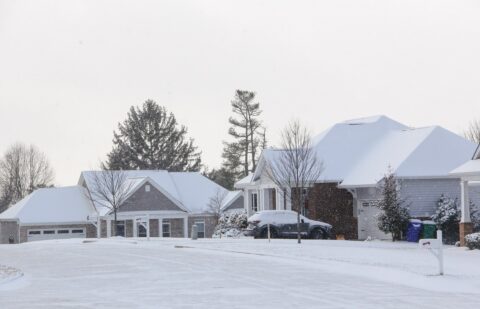
If you’re preparing to sell your home in the spring, renovation projects can help you boost your home’s value this winter! Although certain projects like landscaping are best done in the warmer months, the holiday season is still a great time to check some of those home improvement projects off your to-do list. Keep reading to learn some home renovation project ideas to help boost your home value this winter.
How to Prepare Your Home Interior for Listing Photos

Great listing photos can be created with a few key tips. We’ve covered how to create great listing photos for your home’s exterior; here, we’ll cover how to create photos for your interior! Keep reading to find out how you can create listing photos that bring out the best qualities of your home to attract more sellers.
Your Guide to Becoming a Real Estate Agent in Virginia

In Virginia’s hot market, real estate is an increasingly desirable and lucrative career path. A career in real estate is appealing to many due to the flexibility, variety, and rewarding nature of the job. If you’re thinking about starting your career as a real estate agent, you’re in the right place! Keep reading for the typical process of becoming a licensed real estate agent in Virginia.

 Facebook
Facebook
 X
X
 Pinterest
Pinterest
 Copy Link
Copy Link




